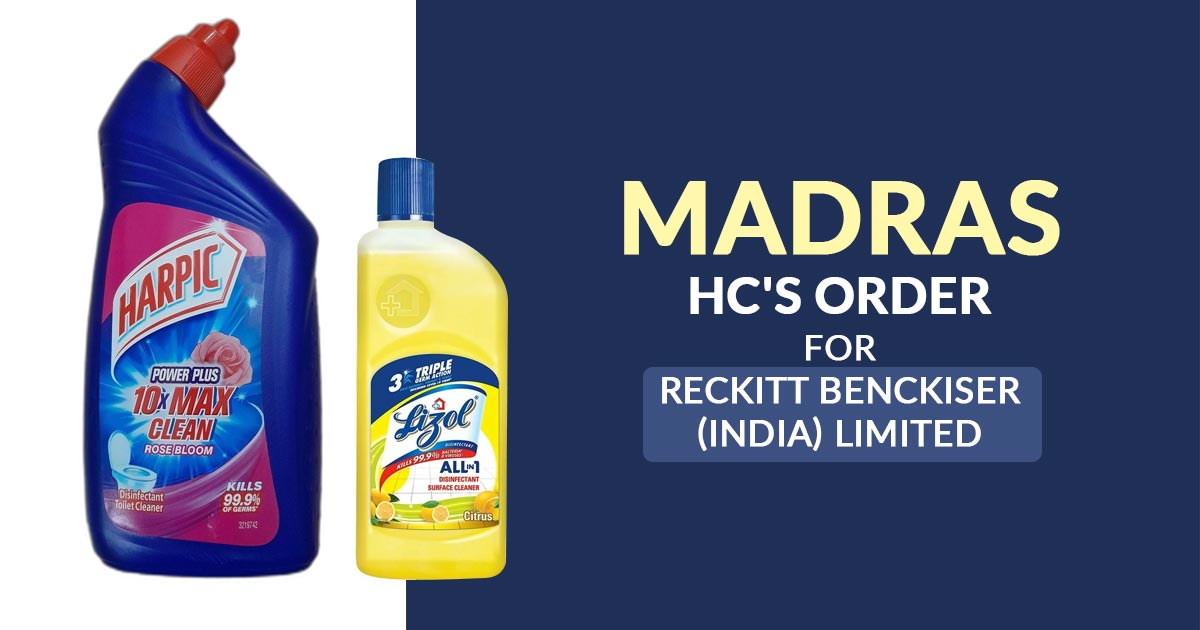
The Madras High Court ruled that Ao’s classification of Harpic and Lizol under the 28% GST slab rate is without consideration.
The bench of Justice Mohammed Shaffiq noted that when complaints are raised, a duty is cast on the assessing authority to apply its mind to the objections and deal with each one of them. Negligence to do so shall vitiate the assessment order based on non-application of mind.
The applicant engaged in the business of manufacturing and supplying floor cleaners, toilet cleaners, medicated soap, dishwashing, handwashing, etc. The applicant had affected sales of Harpic and Lizol by imposing tax at 18% GST on the supply (sale) of goods and remitting it.
The respondent department issues a notice proposing to treat the sale of Harpic and Lizol at 28% GST by treating it as falling under Item No. 29 to 31 of the Fourth Schedule to the Goods and Service Tax Act rejecting the classification under Item 87 of the Third Schedule to the Goods and Service Tax Act.
The proposal had been received from the State Tax Enforcement the assessment order said that it was not marked or disclosed in the show cause notice. The assessment order places dependence on the ingredients used in Harpic and Lizol to abandon the classification that the petitioner made while confirming its proposal to treat Harpic and Lizol as dropping under Entry 31 of the Fourth Schedule liable to tax at 14% under TNGST.
Read Also: Madras HC Permits GST ITC Claim on Basis of GSTR 9, 2A
The applicant, the State of Tamil Nadu had accepted the category of Harpic and Lizol as disinfectants under the TNVAT Act by treating the sales of Harpic and Lizol as falling under Entry 17(a) of Part B to the Fourth Schedule of the TNVAT Act for the period 12.07.2011 to 29.05.2013 and under Entry 22 of Part C to the First Schedule to the TNVAT Act, from 29.05.2013 until GST was introduced wef 01.01.2017.
The department had asked for the category of Lizol as a disinfectant based on an advance ruling. Before the Madurai Bench of the Madras High Court, the advance ruling was put to the challenge, and it was set aside, keeping Harpic and Lizol accountable for being categorized just as disinfectants.
The Madras High Court remarked that assessment orders showed for the first time that the entire proposal had been made based on the proposal obtained from the enforcement wing authorities. As it is only in the order of assessment that it was revealed for the first time that the proposal had been obtained from the enforcement wing authorities, the objections of the applicant were disabled.
The court mentioned that the assessment order suffers from the vice of non-application of mind to the objection and also non-disclosure of the point that the enforcement wing furnishes the proposal, hence perverting the assessment order.
| Case Title | Reckitt Benckiser (India) Limited Vs State of Tamil Nadu through Its Principal Commissioner of GST |
| Citation | W.P. No.12942 of 2021 and W.M.P. No.13744 of 2021 |
| Date | 23.02.2024 |
| For Petitioner | Mr.Jawahar Lal for Mr.R.Saravana Kumar |
| For Respondent | Mr.Haza Nazirudeen Additional Advocate General assisted by Mr.M.Venkateswaran Special Government Pleader |
| Madras High Court | Read Order |








